
As eclectic (in mood, style, genre, origin and so forth) as the previous two lists (maybe even more), the third collection of the less talked about films from the 21st century involves a few titles that will make some professional critics cringe, but what the hell! From highly experimental cinema to humanoid robots, you will certainly find a flick or two (or even five) to cherish.
1. Thief or Reality (Antouanetta Angelidi, 2001) / Greece
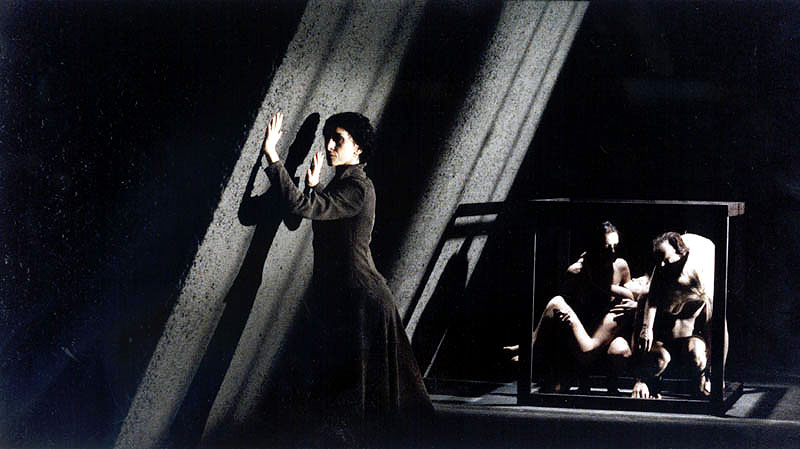
“The world has been formed of dreams. When you wake up, you no longer exist.”
Through the three colliding and intertwining chapters linked by the character of Thief (who might be Time, Doom or Death), Antouanetta Angelidi (Topos) explores the nature and different levels of Reality and she does so from the perspective of a sculptress, a bereaved mother and an actor playing Antigone.
Emphasizing the ambiguity of the natural elements (fire, water, earth), she pulls the viewer into an abstract game of fates and free will between a human and the Universe. Her hyper-lyrical “story” rests upon an esoteric system of symbols utilized by the protagonists on the brink of madness who perform a metaphysical choreography in the theatre of life (or life’s absence).
The enchanting, oft-symmetrical compositions dominated by eternal black and accompanied by the amalgam of sublime silence, heavy drones, ethereal chants, enigmatic dialogues and requiem-like soliloquies establish a funereal, disorienting atmosphere, with a deliberate artificiality as the main trait of Angelidi’s unconventional “ritual”.
2. Woman of Water (Hidenori Sugimori, 2002) / Japan
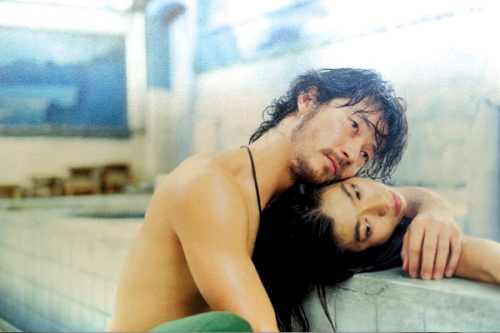
In the feature debut for Hidenori Sugimori, everything is sprinkled with fine azure dust – glints and shadows, mist and the Moon, the roofs and an old truck, the utensils and a huge wall mural, the Fuji mountain and the light in the forest, voices and people, touches, glances, thoughts and emotions…
The omnipresence of blue has to do with the titular heroine’s “curse” – the (literal) downpours on each of her life’s milestones – and with her being a manager of a communal bath (sentō). Even after she, the twenty-something-year-old Ryo Shmizu (sweetly played by the South Korean singer Uee), meets a pyromaniac, Yusaku (the ever-charismatic Tadanobu Asano), the imagery remains indigo.
“Woman of Water (Mizu no Onna)” chronicles the-love-of-the-opposites tale which, in spite of not always avoiding the common trappings, makes for a weird and charming romantic drama. Its forte lies in the dense, oneiric, melancholic atmosphere created via Yōko Kanno’s elegiac instrumentals and the superb cinematography which captures both the loneliness and the small drops of happiness.
3. Reconstruction (Christoffer Boe, 2003) / Denmark
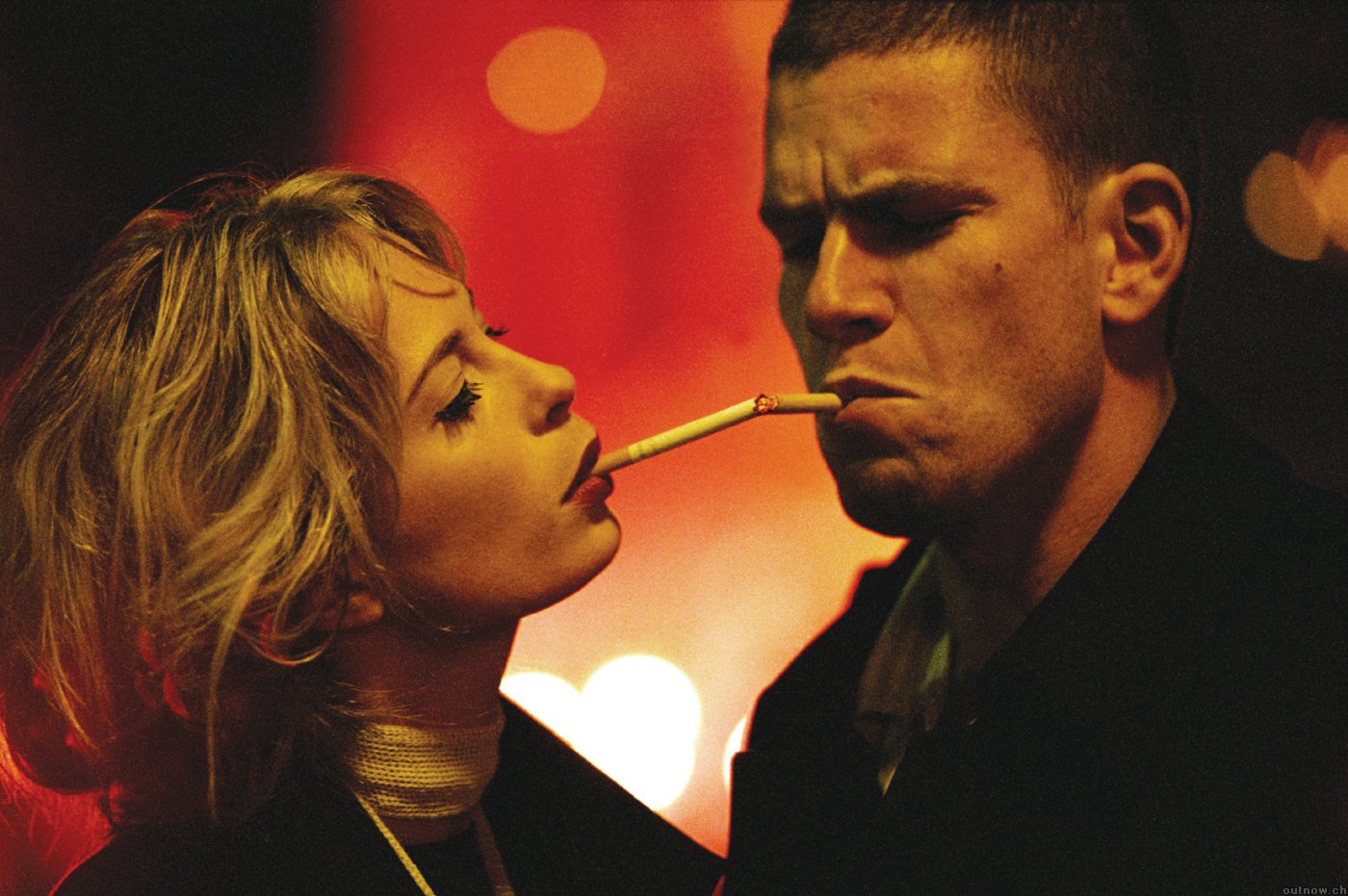
“That’s how it always ends. A bit of magic, a bit of smoke. Something floating…”
And these are the opening words of the first-timer Christoffer Boe’s uncommon romantic drama told from the misleading perspective of a middle-aged novelist, August Holm, cheated by his much younger and uncared-for wife, Aimee.
A few versions of an affair between the ethereally beautiful Aimee and a handsome photographer, Alex, are imagined and reimagined by the “ghost protagonist” hubby in what is most probably a draft for the book emerging in the course of the film.
The reconstructions and deconstructions of August’s broken heart and/or wounded pride imply that he’s the director’s alter ego. On the other hand, this title could also belong to Alex who gets trapped in a parallel world where everyone forgets him and makes him learn the pain of love.
Whatever the case may be, the illusionist Boe boldly experiments with both the narrative structure and hypnotizing imagery (kudos to Manuel Alberto Claro of “Melancholia” fame), taking us on the dreamy tour through Copenhagen’s smoky, dimly lit bars.
4. Innocence (Lucile Hadžihalilović, 2004) / Belgium | France | UK | Japan
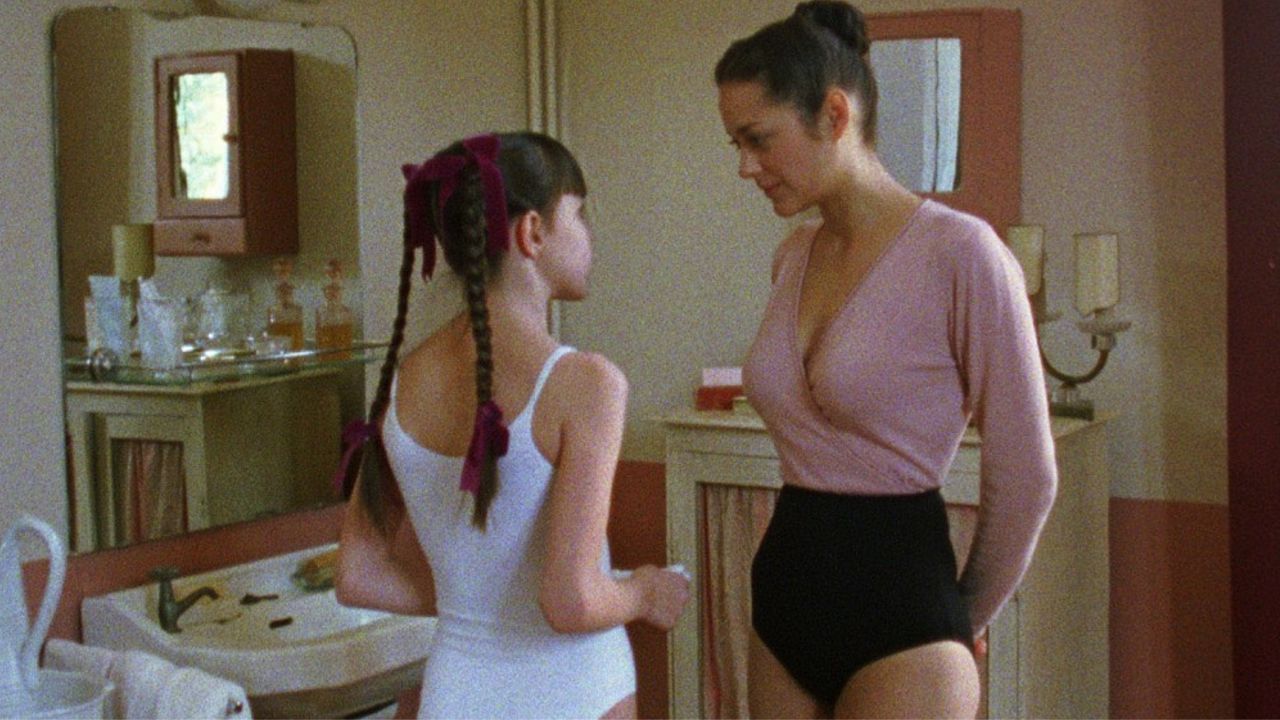
In a coffin with a six pointed star opening, a six year old girl, Iris, arrives at an enigmatic female boarding school. There, she realizes all the protégés wear the same white uniform with differently colored ribbons signifying their age. They must obey the strict rules which forbid any contact with the outside world, including their parents.
But, what’s even weirder is that only two teachers (of ballet and biology) run the institution whose headmistress comes once a year to pick one of the blue-tied girls. The surrounding fortress surreally decorated with lamps and chandeliers keeps the estate’s secrets.
This ironically titled mystery drama is a metaphor about the transformation of human caterpillars to butterflies which involves the subtly depicted innocence loss. One might also read it as a parable of constraint vs. freedom in an oppressive society.
Gently shot, immaculately directed and graced with the wonderful naturalness of the pre-adolescent heroines, “Innocence” is a thought-provoking film whose dreamlike and a bit creepy mood seems to have absorbed the echoes of “Suspiria”.
5. Nina (Heitor Dhalia, 2004) / Brazil
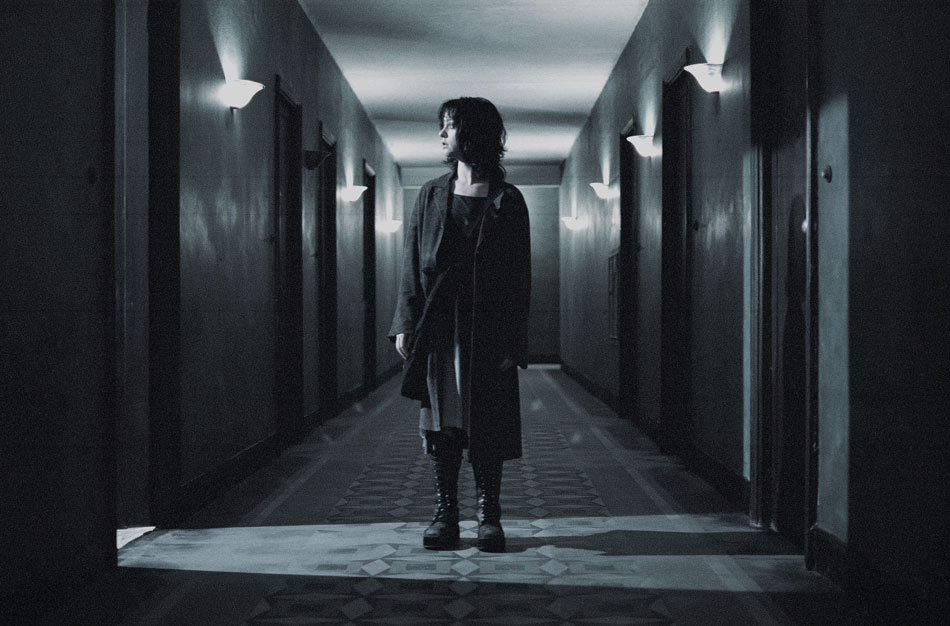
“Nina” brings the story of a poor illustrator trying to survive in São Paulo – her introvert nature, antisocial behavior and, in particular, the vicious landlady make her life a nightmare.
Inspired by Dostoyevsky’s “Crime and Punishment”, Heitor Dhalia guides us through the labyrinth of his protagonist’s tortured psyche mirrored in the gloomy atmosphere, bizarre hallucinations and short, yet effective motion-comic sequences in the style of Nina’s grotesque artwork.
By putting her in a hostile environment which epitomizes the modern society, he leaves us no choice but to empathize with her, even though she – the fucked-up outsider showing no interest in facing the problems and running away to the monochrome world of her drawings – is not easy to love at all. On the other hand, the aforementioned proprietress is a vile and perfidious crone who invokes repulsion from the very first appearance.
Both actresses (and the rest of the ensemble) give an excellent performance under Dhalia’s solid direction of this icy cold psychological drama/thriller which borders the Lynchian territory.
6. Spider Forest (Il-gon Song, 2004) / South Korea
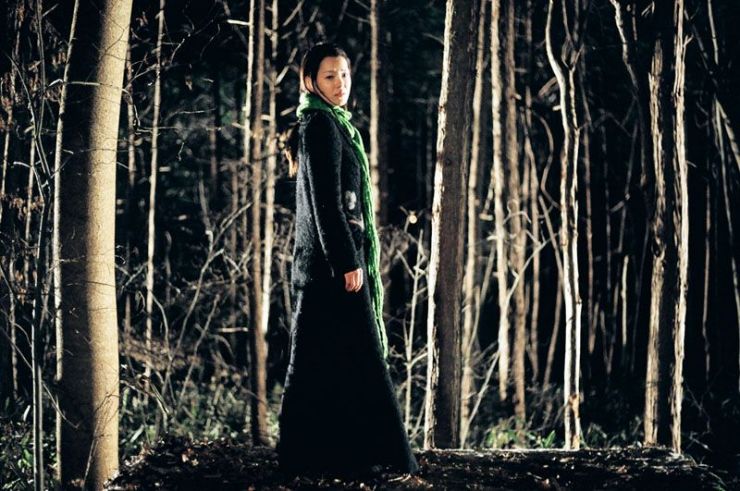
Elliptical, challenging and neatly framed, “Spider Forest (Geomi sup)” revolves around a widowed TV producer whose childhood and recent traumas, as well as the guilty conscience caused by possible involvement in the murder case plunge him into a nightmarish limbo. And not to mention a freaky accident that leaves him barely alive.
The scarce IMDb synopsis for Il-gon Song’s thick, knotty web of drama, mystery and thriller is the antithesis of the very film’s mind-bending complexity which demands multiple viewings. Imagine “Jacob’s Ladder” with the bits of “Memento”, “Lost Highway” and “Mulholland Dr.” thrown in.
Spinning the cyclical narrative of many ‘whos’, ‘whys’, ‘hows’ and ‘whats’, Song acts as a skilled spider who likes to play with the entangled viewer-victim’s perception. Surreally intertwined, his troubled hero’s dreams, visions, memories and realities leave you utterly puzzled and affected by the pervading sense of dark otherness and deep melancholy.
If you liked (any of) the abovementioned movies, you probably won’t be bothered with being lost in “Spider Forest”.
7. Death Trance (Yūji Shimomura, 2005) / Japan | USA
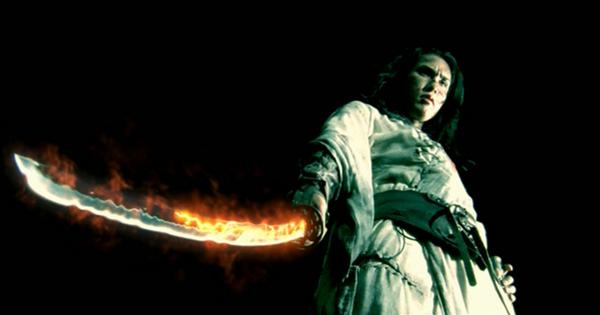
Fueled by the adrenaline-pumping soundtrack (the courtesy of the J-rockers Dir En Grey), “Death Trance” is a nifty little film which brings together the samurai warriors, goth-subculture, angels, vampires, zombie-like creatures, the Goddess of Destruction and the eccentric characters who look like they’re straight out of the Guilty Gear X series of fighting games.
It is a directorial debut for Yūji Shimomura who has previously worked as an action coordinator on Ryūhei Kitamura’s “Versus” and Ten Shimoyama’s “Shinobi: Heart Under Blade”, as well as on Capcom games “Onimusha 3” and “Devil May Cry 4”. And it shows in the brilliant battle scenes.
The plot is of a simple, somewhat esoteric and fill-in-the-blanks-kind, yet much more important is Shimomura’s hyper style that can easily pass as substance. He’s not trying to sell his work as something other than a dark and witty fantasy – competently crafted in spite of its tight budget – with deliberately campy acting, cool poses, cult potential and plenty of interesting details.
8. Hounded (Angelina Maccarone, 2006) / Germany
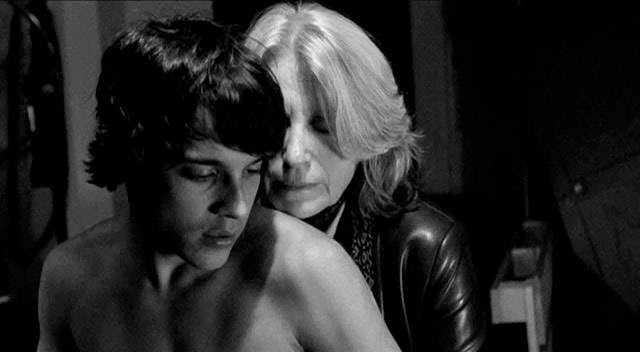
In 2006, the cinema of Germany becomes richer for (at least) two features dealing with the younger man/older woman relationship – the veteran Margarethe von Trotta’s (recommendable) psycho-romantic drama “I Am the Other Woman (Ich bin die Andere)” and Angelina Maccarone’s daring “Hounded, aka Punish Me (Verfolgt)” in which the age difference is much greater and bridged by the protagonists’ penchant for S&M.
A twisted, ethically unacceptable “love” is born between an attractive adolescent delinquent, Jan (Kostja Ullmann), and a frustrated middle-aged social worker, Elsa (Maren Kroymann). He seems to be in for a (painful) sexual experimentation and she is probably trying to get away from a stale, passionless marriage.
The controversial story is tastefully handled and given a human dimension by Maccarone who blurs the line which separates tenderness from roughness and perversion from pure emotions. Her heroes are amateurs who gradually discover the charms of punishing or being punished, whereby their taboo adventure is depicted in a non-exploitative way.
Bernd Meiners’s grainy, high-contrasted B&W cinematography hits all the right notes (as the music is absent), frequently lingering on the characters’ expressive faces.